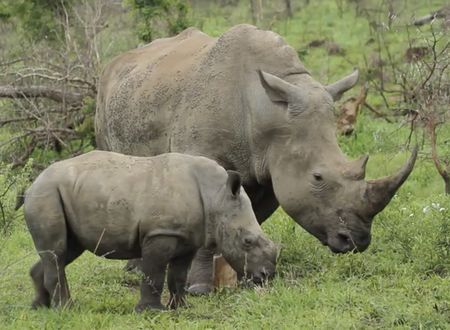Lately, I was recommended to watch a comedy, Oh My God. The movie shows us an atheist’s fight against religious norms and rituals that are fueling businesses and ruling our societies without a glimpse of humanity in it. For example, all the milk poured in a temple sometimes goes to the gutter while the poor starve and not many care. It also depicted how a single person’s determination can bring about a change and highlight the truth of our existence in a very, very Bollywood-y way. It got me smiling, though, so can’t complain at all.
While the movie brings about modern-day Krishna coming to the protagonist’s aid and showing his true nature in front of an atheist, it brings up a question, though!
Can we not follow the path of truth based on an altruistic system of values that can be imparted through generations? It is perhaps difficult to fathom that the equilibrium of wellness and prosperity can only be reached in a large scale of space and time, only if we embrace equality, prosperity and well-being of all and do not get distracted by individualism. Isn’t it quite hard to digest it on a small scale?
Thousands of years ago some of our ancestors figured out that “united we stand and divided we fall”. Since then, humans have tried to inculcate tolerance, kindness, and even compassion, so that we can reach the heights of our possibilities as a species together, which can not be attained as individuals. Similarly, if we study the world of bees, they work together towards a societal goal of wellness and prosperity and do not promote any toll poppy syndrome. It seems to tell us loud and clear that our success as a species depends on how we can cooperate and co-exist and propagate and distribute wellness holistically – materially and compassionately according to our individual capacities.
The concept of cooperation and compassion is also abound in many scriptures. And, it has been also highlighted by an American Mathematician Josh Nash quite in a more mathematical way. I came to know about his work, not through textbooks, but through a movie, called Beautiful Mind, where John Nash (acted by Russell Crowe) argues that a cooperative approach would lead to better chances of success in developing a new concept of governing through his work on Game Theory. In 1994, Nash was awarded the Nobel Memorial Prize in Economic Sciences for his revolutionary work.
Now, the problem is: “If there is a will, there is a way” and we are lacking in our willpower for cooperation and compassion. In the last few hundred years, the world got swept by capitalism, communism, and socialism, and sometimes individuals were just being left to their own devices suffering from war and natural disasters. It seems that we tend to forget our histories, we seem to get too focussed on our own little selves, and get oblivious to our roles in the big picture.
Did we need the concept of reincarnation to get us reminded of our duty, our purpose and to some extent, our obligation to this universe? A selfish mind will perhaps shrink its attention to the current instant only, argue against all altruistic actions and perhaps run in the opposite direction.
In ancient times, the thinkers, the saints, and the philosophers probably figured out the difficulties of teaching altruism to all as well. Perhaps, this difficulty gave rise to different pathways of religions to make people follow the righteous path – either out of love for a supreme being or out of fear of punishment handed out by the same. This principle actually works well, since the human mind is like clay! We can give it any shape we like, we can push it in any direction we like. We don’t actually invent most of our ideas, notions and theories, but they get inculcated into us by our education system and society. We become part of what we read, hear and we absorb. Then, we think! Whether our thoughts are towards the right direction or not is a difficult matter to judge by our individual selves, unless we believe in the instinct of righteousness. Some say that survival is possibly our only primordial instinct. But, I beg to differ. Mostly, we know right from wrong instinctively, too. However, we have a choice of action according to that instinct and the choice determines who we become. As Ralph Waldo Emerson noted, “Every mind must make its choice between truth and repose. It cannot have both.”
Can we help guide the choice? How so? Through education, through incentives of achieving individual success by acting cooperatively, through faith in a supreme being, through the fear of punishment from a supreme being! Doesn’t really matter how, as long as we are going in the right direction.
Bhutan is a Buddhist country where Buddha’s middle way of living a meaningful life gets followed so simply that Bhutan’s quotient of prosperity is national happiness and not national GDP. The Buddhist faith has lightened up Bhutan in the right direction. I can’t wait to go, feel and witness it myself. Being morally correct in any instance is what I try to follow in my personal and professional life.
Sometimes I wonder, do we really need the notion of a supreme being, a deity, a guru or God, a religion to live life with a purpose in a truly meaningful, cooperative world? Can’t we just follow the right principles and embody those and not in the name of God? What stops us?
In Stephen Hawking’s final book “Brief Answers to Big Questions”, he argues that God’s only role in creating of this universe will be to set the initial conditions for the universe to expand from a sub-atomic singularity to an expansion as we know it. See a review here. Our universe started from a singularity smaller than an atom that light could not get out of, the whole world’s everything was so heavily wrapped up in a point that neither time nor space did exist before the big bang! Then, came the big bang and space and time came into existence! Maybe, such expansion and contraction happen in cycles, on a scale of billions of years. The beauty of my little existence is that I’m experiencing living, I’m part of a puzzle that I have seen a full picture of, neither in time nor in space.
Then, again, when I look around and see all these intricately complex biological machines (yes, us), totally autonomous – living, breathing, trying to create more autonomous machines, my mind gets overwhelmed in awe! Even if there are other dimensions outside of our 3-D universe, from where God came and set up the initial conditions and let the experiment run, lo and behold – it is the grandest experiment beyond the imagination of any creature here – at least, till now.
Keeping aside the debates around religion, it is perhaps important to note that there is, in fact, no conflict in the final goal of the continuation of life on Earth – cooperation, compassion and love. No one will deny or dispute it.
I think the path of faith makes our journey to achieve that final goal slightly easier than the path of knowledge, simply because knowledge is everywhere, but wisdom is rather a rarity. With faith, it is more intuitive to concentrate our minds on a singular point and to direct ourselves in any benevolent activity. Intrinsically, we want to check out of our worries to something stronger and feel free-er and more empowered and more useful to contribute to the better health of the world around us.
I started my life in a household where there were numerous festivals celebrated throughout the year. Yet, I saw elderly women being all too alert with their practical duties while offering sweets to the deities. The priest hardly knew the meaning of the hymns that he uttered during pujas. I figured that out when I started learning Sanskrit in my high school and also went through three chapters of Shrimad Bhagwat Geeta (Arjun Bishad Yoga, Sankhya Yoga and Bishwaroop darshan yoga). Not that I understood them at that stage, but the shlokas definitely made their marks in my mind. The faith of people around me, thus, seemed nothing, but rituals.
From my childhood, I was taught, “God is everywhere” and “One who serves life serves God!”At school, when I came to know that even plants are living things, I considered plants as parts of god, too. I remember that watering plants was my way of offering nourishment to “life”.
Then, I grew up! I embraced logic. These days, it seems to me that it will be easier for us to avoid the futile wars around different faiths if we could only spread the values that promote nothing, but moral values to serve humanity, save nature and bring a better future for our future generations to come.
So, I feel that my truth is “being righteous, no matter what”!
P.S – Photo from Pexels by Miguel á Padriñán









Comments & Discussion
6 COMMENTS
Please login to read members' comments and participate in the discussion.